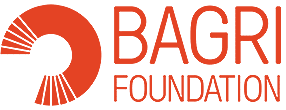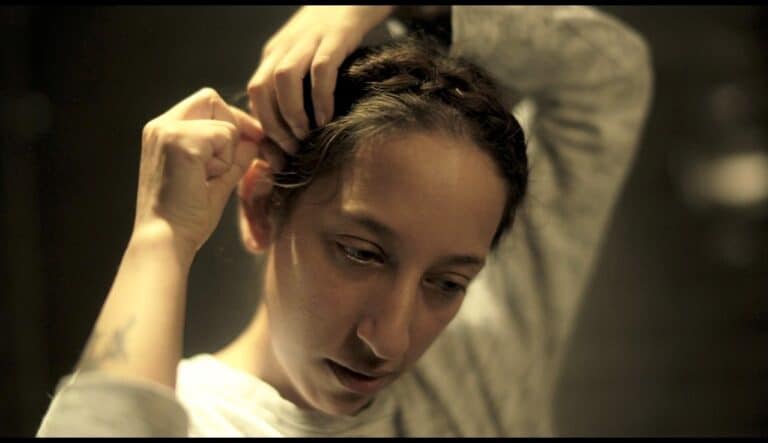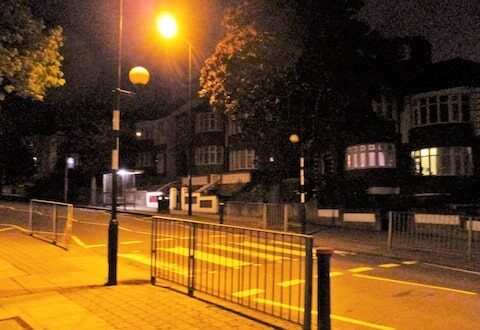30 Artists, 30 Years – Bidisha
BF: We had the pleasure of working with you in 2017 as part of our Small Talk series when you joined photographer and journalist Dr Benjamin Dix and illustrator Gabrielle Frödén to discuss the interconnections between art and human rights. Also, last year you joined our panel discussion for Tales of the Silk Road’s Chapter on Syria with Shorts on Tap. With such wide-ranging knowledge, we’d love to know what inspired you to become a journalist with a focus on arts and human rights?
B: What I love about journalism is that it’s a way of seeing and a way of being. It can be applied to anything, from social justice to creative expression, from light and enjoyable experiences to incredibly serious abuses of power. Journalists are all interested in people, in societies and psychology. We like to converse, to listen and talk, and we think the world is a fascinating place – sometimes fascinating in a good way, sometimes quite the reverse. I started my journalistic career in 1993 when I was 14, writing for the arts, style and lifestyle magazines which proliferated then. I’d always thought that being a journalist would involve going out and meeting people – and this proved to be correct! In terms of subject matter, I just followed whatever I was interested in. I’m interested in all aspects of the world and there’s no difference for me between the arts and culture and power and politics. They all intersect in multiple ways, all the time. The most important thing is to be involved with the world, to connect and communicate.
BF: As a broadcaster, journalist and filmmaker that ties together international human rights, social justice, gender and the arts, how are you navigating those interests in the stormy waters of 2020?
B: 2020 has been quite the whopper. Like most people in my field, my career stopped dead on March 14th when I was due to travel to review a ballet premier, which was cancelled. Since then I haven’t dressed up, I haven’t worn perfume, I’ve only seen the same one friend (twice) and I’ve only left the house about 7 times, to run local errands and once to film a documentary, which was a stressful experience as everyone was very jumpy and cautious. So to call this year strange is an understatement. However, as a human rights journalist I have little patience for these complaints in Britain. At the moment, globally, there are dozens of countries whose people are in the middle of years (not months) of war, civil war, civic breakdown, fragile states, extreme poverty and the catastrophic effects of climate change. These people are unseen and unheard – so I don’t really care if people in London who ordinarily have fabulous careers in the media or in the ‘creative industries’ feel a bit bored or restless or claustrophobic. I feel those things too, of course, but if we place our experiences in context they are tolerable. At a day to day level of course it’s difficult. I am no longer in public life and am broadcasting for radio and TV outlets from home; the live chairing I usually do is either cancelled or happens via webcast – which really isn’t the same thing; work meetings take place for hours on Zoom, which I do sitting on the floor of my bedroom, leaning against the bookshelves. Like many people, I don’t have the concentration for reading and am spending pretty much all day staring at screens, either reading the news or watching films. I think it’s damaging and unnatural to spend so much time in the online, virtual world of entertainment and ‘lifestyle’. I am watching the government fumbling the response to this deadly pandemic and seeing how creative freelancers, activists, the left-behind and the powerless are being pushed to the side and dropped off the edge. I’m also watching the lead-up to the US elections. It’s hard to avoid the conclusion that this is a perfect storm of debilitating negative factors. I commentate on these issues all the time in the papers and on TV and radio, but I’m not sure anything I’m saying has any cut-through; we’re all consuming news and commentary all the time and it’s creating a buzz of anxiety and speculation. It’s hard to process events and move forward when everything seems stalled and lacking in momentum. I stopped writing my diary months ago because it was so boring and repetitive. But as I live in my family home and have always pretty much worked from my study when I’m not broadcasting or filming, I am not kidding myself that this is a new or exceptional situation. Nonetheless, we humans are mammals, we are animals – not quite herd animals but certainly communal and collective creatures. It’s not healthy for everyone to be living in isolation, with restriction, repetition and lack of variety, especially given the breakdown in trust between people and authority figures. If you’re stuck on a ship you at least hope it’s being captained and steered properly – and I’m not 100% sure that it is.
BF: At the beginning of this year, your website’s home page celebrated your first short film An Impossible Poison, a reflection on deceit, ritual and the continued attraction of witchcraft in the contemporary world. Looking at the future, if you would make (or are making!) another film, paraphrasing your 2014 brilliant lecture How to be a journalist,’ what is a story you feel should be told?
B: In a personal creative capacity I have been painting a lot just to burn out my physical restlessness and perfecting stills (which I can’t have printed up as printing services are either closed or limited) from a long term stills series that I call The Last English Dancing Season. They’re images of suburbia, with no people in them – sometimes voyeuristic, sometimes lonely, sometimes affectionate. I have always lived in deep suburbia and find a lot of comfort in its unchanging quality. The images look like film stills and they look like they’ve been heavily colour-treated, but they haven’t. Those orangey streetlights and dusky skies are natural and part of the urban beauty I see all around me. The images speak of affection and disaffection at the same time. I would love to publish The Last English Dancing Seasonas a book next year. It seems to capture a story about England that is rapidly being lost in hatred, division, aggression and polarisation.
I have also been remote directing a series of new films, called the Aurora series, which will be released at the end of the year. I wrote, directed and co-produced them and all consultations with my make-up artist and costumier were done via email and Skype, as were all consultations. This is hardly ideal – ordinarily I would do the costuming myself, and the joy of film making is of course rehearsing with people in the room. I remote directed it (from London Skyping in to LA) and will be remote editing it (from London Skyping in to Glasgow). I had to send huge paintings and art direction notes, originally made and worth hundreds of pounds, across the world by post, with no guarantees. It’s all the fun of film making, without the fun. But I’m very happy with how it’s going and at least it means I’ve produced something this year. I’ll release more details about that when it comes out.

While in my journalism of course I am very politicised when it comes to sex and race, social justice, inclusion and equality, my films and stills are far more personal to me, in a strange way. They touch on my obsessions, my urges and sublimations, my inner self with all its anger, pain, esoteric interests and rage. I am very interested in ritual behaviours, as you say, because ritualism sublimates and externalises inner drives. Rituals collectivise our inner individual feelings – and the core elements of rituals are remarkably similar all around the world and across the centuries. I am not a believer at all (although happy to witness anything weird!) but I’m interested in superstition around the supernatural and the occult, in fallibility and our desperate desire to believe there’s something out there, an organising karmic principle of justice. Why do we believe these things? Is it too painful and lonely to live without them? Are hauntings, premonitions, wishes, curses and unexplained just a part and parcel of being human? I’m also interested in lies. All abusive perpetrators are liars, and very good ones at that, and I’m fascinated because bad people are very good actors: they’re wearing a human mask. I’m fascinated by how perpetrators get away with it (which most do). And I’m interested in masks, costumes, disguises, aliases, dolls and puppets (things humans make, which look human themselves) and in performance and acting and body language.
I acted – or rather, appeared – in my own first film, An Impossible Poison. I enjoy it, although there’s nothing weirder than being at a screening and seeing your own face on a huge cinema screen, with hundreds of strangers in the audience looking at it and not yawning or walking out. I can understand friends and family watching me, to be supportive, but why would total strangers want to look at one’s face? I can’t really act, in the sense of transforming myself role by role or getting under the skin of a fictional character. But I am extremely physical, so I can move and make an impression, costumes sit well on me and I have a very strong presence on camera. Cinematic cameras can somehow pick up or convey an inner essence, often when the actor themselves is unaware of it. And thanks to three decades in radio and TV I can say the words of a script. So I can be in films as long as I’m staying ‘within type’ and basically playing myself. I would love to do more acting, although given the extremely stereotyped roles for non white women in film and TV (terrorist, terrorist’s wife, maid, demonic mother, gibbering victim, servant or slave, criminal…. or random one-line doctor/lawyer/accountant!) I don’t think I will get anything. I am also 20 years too old and in no way beautiful enough to be a movie star. In terms of sheer presence – the ability to convey something without apparently doing anything – my performance idols are Tilda Swinton, Michael Shannon, young Christopher Walken and Keanu Reeves.
My next film series is called Aurora. Aurora is a spiritual healer, guru and guide who’s become popular on YouTube with her healing, soothing videos. She makes viewers feel seen and understood and guides them towards letting go of their pain and moving on in life. She’s pretty fabulous. I’m fascinated by the self-help, wellness and healing industries and often paint or work with a random self-help video playing off YouTube on my iPad. These gurus have thousands of followers and a very distinctive, alluring, comforting way of communicating with the people they’re listening to. In terms of performance and communication it’s absolutely fascinating. I’m interested in the way the online world is our id, our subconscious and a pretty accurate map of our interests and needs at any time. It’s like an outbrain. So clearly these self help gurus are giving people what they need and what they don’t have. I’m excited for the series and have a feeling that Aurora’s going to become quite the cult figure.
Biography
Bidisha is a broadcaster, writer, film-maker and stills maker. She writes for the main UK broadsheets (currently as dance, art and book critic for The Observer and The Guardian) and presents and commentates for BBC TV and radio, Channel 4 News and Sky News, where she has been a regular since 2016. Her fifth book, Asylum and Exile: Hidden Voices of London (2015), is based on her outreach work in UK prisons, refugee charities and detention centres. Her first film, An Impossible Poison, premiered in London in March 2018. It has been highly critically acclaimed and selected for numerous international film festivals. She is currently working on a series of films called the Aurora series, due out in late 2020. Her next book is The Future of Serious Art, due out in November 2020 (Unbound/Tortoise Media).
Interviewed by Chelsea Pettitt, Head of Arts, and Alessandra Cianetti, Project Manager – Sept 2020




